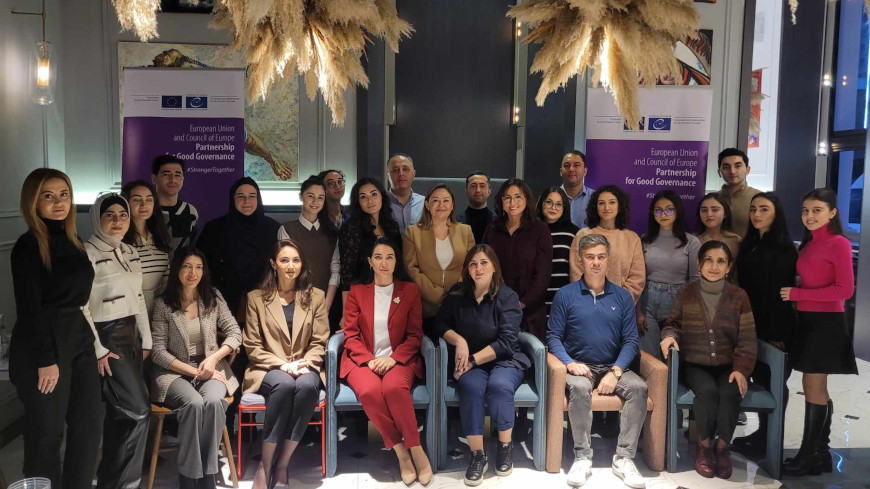A group of 25 legal professionals in Azerbaijan convened in Baku for the café discussion "Zero tolerance to domestic violence in society". This event takes place during the "16 Days of Activism against Gender-Based Violence" period, which runs from 25 November to 10 December every year.
The event aimed to facilitate informal discussions among judges, lawyers, members of the Bar Association, and law students on implementing international standards to combat violence against women and domestic violence. Within a positive and friendly atmosphere, and regardless of professional standing, all attendees expressed that they felt equal in expressing their ideas and sharing their experience.
Jeyhun Garajayev, Judge of the Constitutional Court of the Republic of Azerbaijan, presented known international standards on violence against women and domestic violence. He also provided practical examples of how legal professionals can apply these standards in their daily work to prevent and combat such violence.
Fariz Namazli, member of the Bar Association, expressed the value of the event, stating, "It was very useful to listen to and exchange ideas with Judge Garajayev, who has broad experience in combating domestic violence and was involved in drafting and adopting the Law on preventing domestic violence in Azerbaijan."
This event is part of the European Union and Council of Europe joint programme “Partnership for Good Governance”, co-funded by the European Union and the Council of Europe, and implemented by the Council of Europe, in the framework of the project “Preventing and combating violence against women and domestic violence in Azerbaijan”.





